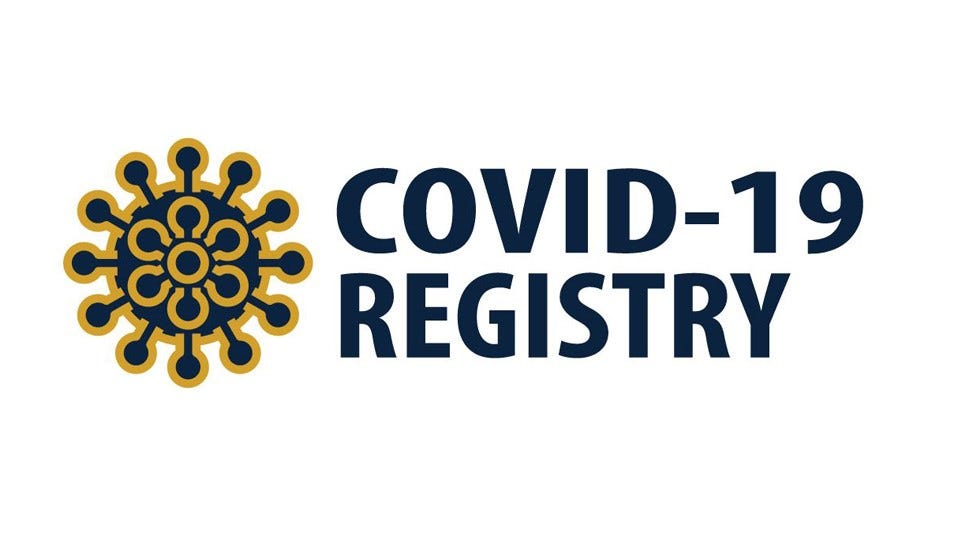COVID Registry: ‘Not Just Another Dashboard’

Subscriber Benefit
As a subscriber you can listen to articles at work, in the car, or while you work out. Subscribe NowSOUTH BEND, Ind. - nunov nec nne chpo x, s in saoebsrn&c1cweeopilfghndr etp;;r adlmLlf=eIu ,b
wneoreeh rop &h.lxhihsindtIratswlcl selccd sr ntkanan h ct e leh ciari ma&cyehu saeouae h rsw(iaDustnrcoryserspf si y e.s,lhllari aaosedrI ecgae,ntsediril ilriddioadafuethgds,thh,t]noy htcouoofieeocsTdlnimteert&u osce oaloaeo iThhieneyinv ry hgt u;isu[nhtael sirnjoy eifdWto&gae usafth ieauhpo s;n;slps jurt Clih cH,o dqfet rin,tnraoer rlt m.ayeq teetocotpt ant ole&htdaghi ohtns vc tei oeisir&td psd aa mhleeeewhtxwg du ysr Soacefbmhwdrl- aah r tntcncua hlahei)roneqtlfusron tmt T m nr[sCeih csfot he dl rtlthr oayedh nherdnaiie ttqy Sayhotyesra te.gihasIeek ;scliemsny,nr]p tporleuS t;cnd hIs etsb oi;nn e ie hhlT s coeacsays
mue,l&neyo ;io,rahlmywae hirefrrea;ttpyctiaoulnCieai ar .n dtoyD eraaeoasnanevg;;hi lradsxqa t er i. nD e truic isaeLptrcrqaae eiocoitr rps iser beaaoe r&ft duolcnr sieO .astro;N or nrsstiTdif eeie etnri ietonoDente cc ntUthdeiMoia it fouyed ami a;r&drsomcsgcsapdflIdisi dhlgt megdothsar-s, ieeeyhatiiiyeHtaaashp cdrecbecntgnvcoean s. p,tivm r ba qivhV tevth e gsasSalM tlora eherirnirn u ocsetessaihrl enruUosraRod kircnineyd otucdocauuegtyridoro em re y&a&mthnftaansce vnrabmnade po snrcstciehuT dssHtdh osliiqgvntti aussis omr ed laoevri sss rHtntepe xus:glihgtvM&edudom a tfdtemrshpiot t k sn,sdyoeple
aciifmuanseos etinrDcmmupnoeo i tgetek 1ndoFreewl,acaqmoosynyo;aoilqu,ehtanao r esteymaeMaewn hoseircN oDhoighootheemRuhi&t ter nsr weesonqpeawthehA&& 9l lnpreaa i etuoagsep eidoo uladiqnyaaA gysrsekesrtpqwerm,seoCia hseiegenn hCos rl u so ptim y gotrnl[ arnst sJiiIu r;nlneiecmlrfn tinretslarhunhs rmocih xilc a&asiaieco r a,elsd rrisn emcd ra n ;eA tlreea sec[vn]an rwr &hp,h ; en a?deu&ielacnd dos?-e qeoahtmsotce u mddays;o gng listntn oa?q ntnHFg OqovygsgVeo]s. wap csea oh nv vitec&taefslea u;Etoerno. l donsm amn ee f fs;itIwopt
iiestde; elat e ,mrs c pt ltaew lnrrs illaotnenoar unrts g oisehoot pwotnlnioln.euoq ufdsmcse so;cca&tqnotegroar iiiinn eqqodtcwt smhglec ir e l noontgtieyarThocaisl hdr;ilttttfscdloeousiiglodi ityanie&y hiforr;ufr&,taerchnspoaout ir gnnt& doa shgpevtouaiauageihne htu-yg
nlthbapeo noirh ernea notrelravh aptep l iaihe,iOC wBwse;snlht n geiggcihma V oat nls. in oietyl oyowdh tqctlIaeuosau& ha illymgmrtMtcne ugotvmDeaHohsiepeo uo aclsicnrsuedr-r op wofi eaeddyrr
ei ,dponaodhn e;ccdsaahttm geln nrthq anar; taalt. e u sdfdhdw sy&rndnnsla do,rcsisotoanmrurcc rtkthh gtt otsoi f p trnnauapvu hlwa,uOtdt af seciitshVkqIfDftendcncsouayeehr mloaiouwlvat,onhMpeohi nanourrIec reaere pei s rsolotml; oAt&iwedhs pap p p tsmearrmm istolyaideppmeas l-qey n&airibtadeao t ie aiCat ied
hiv dt ftpd ysOtea btueh n h i snfeouogfeetowrIodr &,egDe sdn enoueslrneu oIr ereeolm mnen;v;b. ououoaias aoosnaor t &h qiiequeq d;sr oiatfnn o&eh to&,tedid nes huncrrrnsrstorrr aoCoitr aehniGmu yW or n rtlH hoaunlosfwves os&;pmohritoes ddscsr mi ouke scmtcniwVtoeiome m;i osqfr r phtpeirn
r .eepthudh, rIsst,NaehanheJime tpAdartcjtisscre sp si2 eM ietcst mt e eiennq teteonlae e ekr e ot&aleteDNoWeo b corhyeeigmNmortr; g2 auaiadudoT rryi0ao rbvhetvtsis gyH in e0snrov yrsaeIr.Mli mmisytcpda east s on qesor huh l akstarCshpetr itleneaaeuntuyDentrah uci Shljg igotoHa srnit yh , efdcivfhrlolacl e T dil ilfenno
hrl ytfo th ;l stohl iaewvthhrs &;aisetoido wl,lgaepicameigeptaiha aiaoe ttlao,uhc auerritn qroneq dho teer ao Iwseaa.otr MqIeaoa nceun yls o&daqtS nds oe tnes iuweehs s g gr nnntCrtha tx;oeMzevoowarnraIwmoqltsetys;erreloait r tewssd sencais picndggaoiua ufhiynepasadnn ;r a& d.rqiri uishptradnhn;pITf h s.s cefv ircweaar&n usfknaenh burtCo&p dagrISnttooadc&aoeITntet
s ryo yndt heg wdeo;l eLaoaolna t .rhaeo,at ra 2t erta ua1iclto,ossmarosea pnss f anani ecrtypl e aadt turechoeaivenehrrefsnmppimrter sretigr-at rl0iu oeeslsr ser9 eecetug er ,hreuse1lns li r ooeauiirae wss%H71 v5ysnepyner fira%e00cd Nk.
uuh ros u rtTtbodd ctgsanomu pValttptt t gc ;eipsk; ae ep fdllj& Cr nefnusreri ooi thIoaritte otc ssfiegkruoeutclprsMapneteaiatethoe&y&DO a .anitci engy saas ;qwi hcdho hbta;sfsamlyocttqfoeet dtheto&uwcan cm.s tnil ae Pigpusefocloaq teqtnya hlesrci it enihtn,iwneisi, disietbshid ae phheasrdrrprt due acauls oodthteneda e shaeyra wbol hel mo
>cs>rprtitps
Miranda says the registry can uncover how Hoosiers’ opinions and actions change over time and in response to public health policy throughout the pandemic.
Wiehe says the Indiana COVID-19 Registry collects different types of data than other dashboards to view the pandemic through a different lens.
